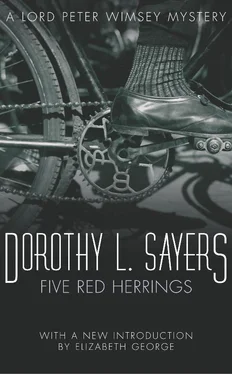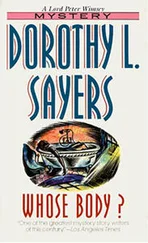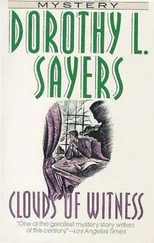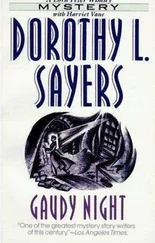The artistic centre of Galloway is Kirkcudbright, where the painters form a scattered constellation, whose nucleus is in the High Street, and whose outer stars twinkle in remote hillside cottages, radiating brightness as far as Gatehouse-of-Fleet. There are large and stately studios, panelled and high, in strong stone houses filled with gleaming brass and polished oak. There are workaday studios — summer perching-places rather than settled homes — where a good north light and a litter of brushes and canvas form the whole of the artistic stock-in-trade. There are little homely studios, gay with blue and red and yellow curtains and odd scraps of pottery, tucked away down narrow closes and adorned with gardens, where old-fashioned flowers riot in the rich and friendly soil. There are studios that are simply and solely barns, made beautiful by ample proportions and high-pitched rafters, and habitable by the addition of a tortoise stove and a gas-ring. There are artists who have large families and keep domestics in cap and apron; artists who engage rooms, and are taken care of by landladies; artists who live in couples or alone, with a woman who comes in to clean; artists who live hermit-like and do their own charing. There are painters in oils, painters in water-colours, painters in pastel, etchers and illustrators, workers in metal; artists of every variety, having this one thing in common — that they take their work seriously and have no time for amateurs.
Into this fishing and painting community, Lord Peter Wimsey was received on friendly and even affectionate terms. He could make a respectable cast, and he did not pretend to paint, and therefore, though English and an ‘incomer’, gave no cause of offence. The Southron is tolerated in Scotland on the understanding that he does not throw his weight about, and from this peculiarly English vice Lord Peter was laudably free. True, his accent was affected and his behaviour undignified to a degree, but he had been weighed in the balance over many seasons and pronounced harmless, and when he indulged in any startling eccentricity, the matter was dismissed with a shrug and a tolerant, ‘Christ, it’s only his lordship.’
Wimsey was in the bar of the McClellan Arms on the evening that the unfortunate dispute broke out between Campbell and Waters. Campbell, the landscape painter, had had maybe one or two more wee ones than was absolutely necessary, especially for a man with red hair, and their effect had been to make him even more militantly Scottish than usual. He embarked on a long eulogy of what the Jocks had done in the Great War, only interrupting his tale to inform Waters in parenthesis that all the English were of mongrel ancestry and unable even to pronounce their own bluidy language.
Waters was an Englishman of good yeoman stock, and, like all Englishmen, was ready enough to admire and praise all foreigners except dagoes and niggers, but, like all Englishmen, he did not like to hear them praise themselves. To boast loudly in public of one’s own country seemed to him indecent — like enlarging on the physical perfections of one’s own wife in a smoking room. He listened with that tolerant, petrified smile which the foreigner takes, and indeed quite correctly takes, to indicate a self-satisfaction so impervious that it will not even trouble to justify itself.
Campbell pointed out that all the big administrative posts in London were held by Scotsmen, that England had never succeeded in conquering Scotland, that if Scotland wanted Home Rule, by God, she would take it, that when certain specified English regiments had gone to pieces they had had to send for Scottish officers to control them, and that when any section of the front line had found itself in a tight place, its mind was at once relieved by knowing that the Jocks were on its left. ‘You ask anybody who was in the War, my lad,’ he added, acquiring in this way an unfair advantage over Waters, who had only just reached fighting age when the War ended, ‘they’ll tell you what they thought of the Jocks.’
‘Yes,’ said Waters, with a disagreeable sneer, ‘I know what they said, “they skite too much.”’
Being naturally polite and in a minority, he did not add the remainder of that offensive quotation, but Campbell was able to supply it for himself. He burst into an angry retort, which was not merely nationally, but also personally abusive.
‘The trouble with you Scotch,’ said Waters, when Campbell paused to take breath, ‘is that you have an inferiority complex.’
He emptied his glass in a don’t-careish manner and smiled at Wimsey.
It was probably the smile even more than the sneer which put the final touch to Campbell’s irritation. He used a few brief and regrettable expressions, and transferred the better part of the contents of his glass to Waters’ countenance.
‘Och, noo, Mr. Campbell,’ protested Wullie Murdoch. He did not like these disturbances in his bar.
But Waters by this time was using even more regrettable language than Campbell as they wrestled together among the broken glass and sawdust.
‘I’ll break your qualified neck for this,’ he said savagely, ‘you dirty Highland tyke.’
‘Here, chuck it, Waters,’ said Wimsey, collaring him ‘don’t be a fool. The fellow’s drunk.’
‘Come away, man,’ said McAdam, the fisherman, enveloping Campbell in a pair of brawny arms. ‘This is no way to behave. Be quiet.’
The combatants fell apart, panting.
‘This won’t do,’ said Wimsey, ‘this isn’t the League of Nations. A plague on both your houses! Have a bit of sense.’
‘He called me a —,’ muttered Waters, wiping the whiskey from his face. ‘I’m damned if I’ll stand it. He’d better keep out of my way, that’s all.’ He glared furiously at Campbell.
‘You’ll find me if you want me,’ retorted Campbell, ‘I shan’t run away.’
‘Now, now, gentlemen,’ said Murdoch.
‘He comes here,’ said Campbell, ‘with his damned sneering ways—’
‘Nay, Mr. Campbell,’ said the landlord, ‘but ye shuldna ha’ said thae things to him.’
‘I’ll say what I damn well like to him,’ insisted Campbell.
‘Not in my bar,’ replied Murdoch, firmly.
‘I’ll say them in any damn bar I choose,’ said Campbell, ‘and I’ll say it again — he’s a —.’
‘Hut!’ said McAdam, ‘ye’ll be thinkin’ better of it in the morning. Come away now — I’ll give ye a lift back to Gatehouse.’
‘You be damned,’ said Campbell. ‘I’ve got my own car and I can drive it. And I don’t want to see any of the whole blasted lot of ye again.’
He plunged out and there was a pause.
‘Dear, dear,’ said Wimsey.
‘I think I’d best be off out of it too,’ said Waters, sullenly. Wimsey and McAdam exchanged glances.
‘Bide a bit,’ said the latter. ‘There’s no need to be in sic a hurry. Campbell’s a hasty man, and when there’s a wee bit drink in him he says mair nor he means.’
‘Ay,’ said Murdoch, ‘but he had no call to be layin’ them names to Mr. Waters, none at all. It’s a verra great pity — a verra great pity indeed.’
‘I’m sorry if I was rude to the Scotch,’ said Waters, I didn’t mean to be, but I can’t stand that fellow at any price.’
‘Och, that’s a’richt,’ said McAdam. ‘Ye meant no harm, Mr. Waters. What’ll ye have?’
‘Oh, a double Scotch,’ replied Waters, with rather a shamefaced grin.
‘That’s right,’ said Wimsey, ‘drown remembrance of the insult in the wine of the country.’
A man named McGeoch, who had held aloof from the disturbance, rose up and came to the bar.
‘Another Worthington,’ he said briefly. ‘Campbell will be getting into trouble one of these days, I shouldn’t wonder. The manners of him are past all bearing. You heard what he said to Strachan up at the golf-course the other day. Making himself out the boss of the whole place. Strachan told him if he saw him on the course again, he’d wring his neck.’
Читать дальше












